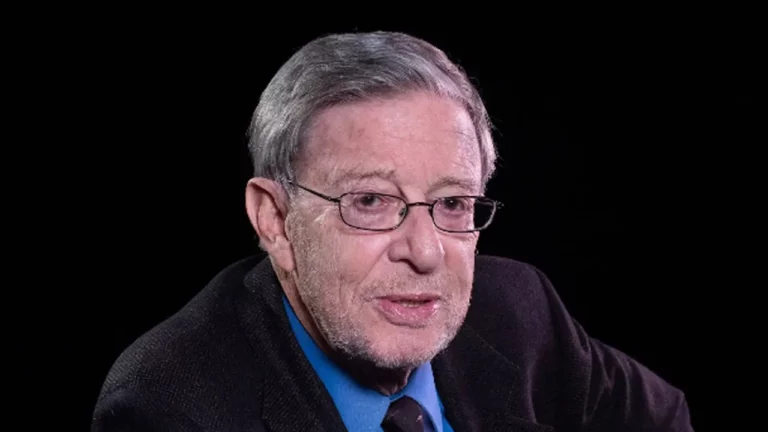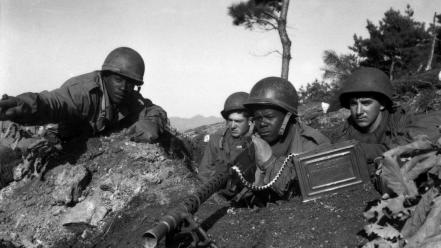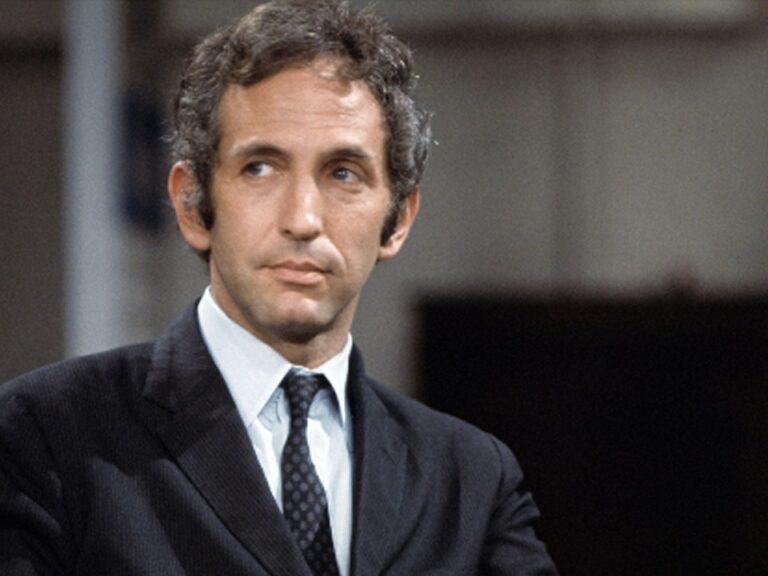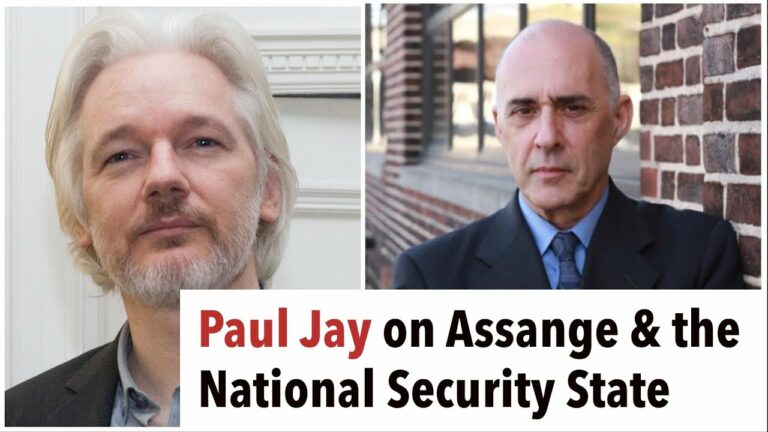The Watergate break-in was leaked to Smith before Woodward and Bernstein, but the Times refused to pursue the story. Bob and Paul discuss how bias and suppression of important stories continue to this day, on theAnalysis.news with Paul Jay.
Paul Jay
Hi, I’m Paul Jay, welcome to theAnalysis.news. Please don’t forget the donate button, subscribe and share. And in a few seconds, we’ll be back with part two of my conversation with Bob Smith, the former Washington correspondent for the New York Times. We’re going to be talking about his book, Suppressed: Confessions of a Former New York Times Washington Correspondent.
I thought one of the more recent examples of bias that you’re talking about in the New York Times is their whole coverage of what some people are now calling Russiagate. Like, how was that the New York Times, after all the experience we have with being lied to, by the U.S. intelligence agencies, how do you believe what they say just on the face of it?
I mean, I have actually no opinion whatsoever whether Russia interfered in the elections. I have no opinion whatsoever about what Trump did or didn’t do in the Ukraine and so on, but I cannot take stuff that I see in the New York Times and other publications that simply quote the American intelligence agencies without revealing what the actual story is. And why would a journalist, unless it’s biased, that you just want to go out and attack Trump because it makes your paper money?
Bob Smith
Well, it’s not necessarily− remember, the journalist is operating at a different level. The journalist’s incentives are well, they vary as they do in all fields for all of us. But I mean, typically, journalists would like to be recognized as a really good journalist. And that’s different from making the paper money. That goes back to the old shibboleth about oh print anything that’ll sell the paper. The 1940s, 1950s, people routinely said, oh, yeah, they’ll put anything there that will sell the paper. Remember when it was in a news box in the corner or somebody was passing the paper and saying, oh, you know, today’s news?
So, I’m not sure it’s quite like that. You may be right, but you must posit that the people who are running the enterprise their need or desire to make money filters down to the reporters and editors who are handling the copy. I’m not at all sure about that because they don’t have the same rights like a Silicon Valley start-up, where they have a direct interest in the revenue taken−
Paul Jay
Yeah, I don’t think it’s so direct that a journalist says, oh, I’ll go along with such and such because it will make the paper money. But I got to know, a few years ago, I was working out of a newsroom in D.C., I had a separate operation, but we had to kind of share the office space and it was a big publication. The guy that covered national affairs and especially economics, I had this conversation with him where I said, clearly this is a class society. Clearly, the elites, the financial elites are enriching themselves, in unprecedented historical levels. There’s almost no accountability. Nobody goes to jail in 07/08 for outright fraud in the financial sector. I mean, he and I are talking about this and he’s agreeing with what I’m saying about the extent to which political power in Washington is so controlled by campaign finance and particularly from the finance sector. And then I said to him, well, I don’t understand, why don’t you ever write about this? I mean, you and I are agreeing on all this stuff, but I never see any of this in your columns. And he said I got a mortgage. My kids go to private school. He says if I don’t stay within a certain lane, of what I report on, and what I was saying, he didn’t have to give his opinion. There are many ways, this is fact-based reporting would have made these points without making an opinionated piece. But he says, if I don’t stay within such and such lane, I’m accused of having an agenda.
Bob Smith
Today, he’d be welcome to having an agenda if it were the right agenda.
Paul Jay
Exactly if it’s the same agenda as the publication.
Bob Smith
But there’s also a sort of acculturation of ownership by the source, so to speak, I think of it. That took place, that wasn’t exactly what you’re describing but had a parallel effect. It’s this, it’s in the book. At one point I was leaked, I think it was by the Comptroller of the Currency Office, someone there made a list, and the list was the government’s view, or as we are told the currency’s view and then the regulators, of problem banks, banks with problems, that kept the list. So, I got the list! You think this is a great story, wouldn’t you? I mean, hey, so I was doing a story. And someone sitting behind me at that time, there were only two, what we call Business Financial reporters, right. And they were very bright people. And I said, geez now I think it’s a good story. And they both said, no, we won’t touch it. No, we won’t touch it. I said Well, for heaven’s sake. Why not? It’s the government saying this. I didn’t want to quarrel with them, they’re reporters, they’re my colleagues and friends. Well, obviously, they didn’t want to touch it. So, I did, and the New York Times touched it, and we printed it. And that was remarkable.
So, a lot depends here, Paul, on the individual reporters as you’re being kind enough to point out. If you present them, you present the editors into the story, it’s very hard for them if everybody sort of knows, intuitively, what a good news story is. To say, no, we’re not going to print this. I said, well, why not? And I’ll give you one follow-up on that if I may. At one point I was covering the foreign multinational corporations giving bribes, reportedly, and in fact, overseas, right. So, I was covering a number of entities that were looking into this and pre-eminently Senate Foreign Relations Committee. All right, so I got this wonderful letter. I mean, I think it’s one of the funniest and most effective things I ever got leaked or given, or whatever it was. It was a letter from a lawyer for Lockheed, I think it was, who was in Geneva in Switzerland, dealing with the people Lockheed was bribing or the conduit for the bribes to government officials so they’d get to build the airplanes. So, this lawyer is sitting there and writing in Swiss hotel stationery, and he’s extremely candid. He says, well, if you look in your codebook, look up Annalope something, whatever, you know whom I’m talking about. And he said we’re going to have to pay more because the Italians and the French are offering more, and so on, and so on. And at the last paragraph of this, it was only 10-12 paragraphs, I can’t remember, he says, and you might say, well, why is he talking to me like this? And they said because I’m a lawyer. It was hilarious. This is an American lawyer being trusted. OK, so− but it perfectly makes the case they were paying bribes. There’s no question about it. Good. Great story. So, I write it and I send it where? Where did you go? To Business Financial. Do they run it? No. Now, how could they not run it?
It’s so upsetting that they didn’t run it that I turned around, and I was writing regularly for the News of the Week in Review in the Sunday paper, and they were taking my stuff every week, a lot of weeks, and they weren’t turning it down when I wrote the rant. So, I took exactly the same story, didn’t touch it, and sent it to the News of the Week in Review on Sunday, which has a much bigger audience, right? They ran it! They ran it.
Then Monday I come into the office and the editor, I’ll never forget it, walks up to me in mid-morning and says, Bob, Business Financial is calling, they want to know why you didn’t get them the news? I open the desk and show them the duplicates. But the point is, if you’re determined and you’re a journalist, you get it in somewhere.
Paul Jay
Unfortunately, there are not too many of such. But anyway, talk about the Watergate story, why didn’t the New York Times− what happened and why didn’t they want to cover the Watergate story?
Bob Smith
The why is elusive. What happened is I had lunch my last day at the paper, the next day I was going off to law school−
Paul Jay
So what year are we in?
Bob Smith
1972. And I don’t know why. I had lunch that day with the director of the Federal Bureau of Investigation with whom I got along very well. I liked the guy and apparently, he liked me, but whatever we got along. So, we had lunch in a French restaurant in Washington and we sit down. I’m on a bonket I’m wearing my college suede jacket. I have my notebook and it’s a crowded French restaurant. And I’m sitting there, and he begins to tell me about Watergate, with the name. I’m so astonished, I can’t take out my notebook, because if I did, everybody in the room would know what’s going on. So, I have a notably bad memory for names−
Paul Jay
Okay, hang on here. What did he tell you?
Bob Smith
He told me about Segretti [Donald] and what had happened. And I said, well, he said it went to the Attorney General. I asked him and I said, well, does he go to the president? I was in total disbelief over this lunch, right.
Paul Jay
Okay, just really quickly again, let me very quickly, for people that are younger, President Nixon, gets some of his plumbers’ operatives to break into the Watergate Hotel to the Democratic Party headquarters and steal documents, and it’s part of a campaign they hope they can use to sabotage the candidacy of the Democratic nominee, and so on. They get caught and then there’s this whole unraveling. There’s a movie, if you don’t know, go watch All the President’s Men.
The big question is, what did the president know and when did he know it? So, when does the FBI acting director telling you this? And is he telling you that Nixon knew?
Bob Smith
Yes. Well, I said, and to pick up the story I said, up to the president. Is it about the president? And he just sat there and looked at me and said yes. So, I had the story, and I had it two months before Woodward [Bob] and Bernstein [Carl] began hitting the Times over the head with the story. Two months in a journalistic context is a very remarkable amount of time. So, I ran back to the Times Bureau, grabbed the news editor Bob Phelps, put him in his office, typed up a sign that said, ‘Do Not Disturb’, started a recording machine so I could give him the tape last night to brief myself since I’d be leaving, and gave him a notebook and pen and said, listen, here’s what happened. I don’t know how long the debrief was, a half-hour, 40 minutes, whatever, I told him everything I knew. When I finished, he went out in the newsroom and there was about three dozen present company excepted really good reporters in the Washington Bureau. And I assume he’d get some of them to follow the story. I tooted off to New Haven and started law school and I didn’t see the story. I was completely bewildered that I didn’t see the story. I assumed, I mean, I was caught up in that first semester of law school, which honestly was a remarkable experience, just a wonderful experience. I wasn’t−
Paul Jay
But you told the editor who your source was?
Bob Smith
Yes!
Paul Jay
He knows this was the acting Director of the FBI. And this is not−
Bob Smith
Right, I told him. I said you can’t use his name, but yeah. But I assumed− people always say, well, why didn’t you do something? And I say, what do you mean? First off, I told him everything I knew, and secondly, it was the news editor of the Bureau, the guy in charge. And thirdly, there were a lot of good reporters, I assumed, they had checked out what I’d have given him, and it wasn’t right or something. I mean, it was bizarre to think otherwise, right. Then Woodward and Bernstein started, superbly, doing their stuff. And the Times called me, can’t remember anymore, October, November, somewhere in there, and said, please come back. I considered it. I said, give me a day I’d think it over. I know this sounds a bit odd, but it’s a part of my personality that I sort of focus on one thing at a time. I want to be a really good mediator. I want to be the best kind of reporter sort of thing. So, I was caught up in law school and just loving it and so impressed by what I was learning. I thought about it. And they said, listen, we’ll pay for you coming back. We’ll pay for you to go back to Yale in a year from now, try to arrange it with law school. Go ahead and try to arrange to go back in a year, they’ll understand. And I said, no. I’m in the middle of an amazing experience. I don’t want to do it. You’ve got lots of good reporters.
Paul Jay
But they wanted you to come back now to cover Watergate because that’s what the point was?
Bob Smith
Yes, and I said−
Paul Jay
Did they ever explain to you what the hell happened? Did you ever find out what happened?
Bob Smith
Right, I will just finish that story. I said I’ll do something for you. I’ll call my source because they didn’t know, they weren’t the editor. And I’ll try to see if I can get some more for you. And I called Pat, the FBI Director, but he didn’t return my call. I have a whole theory about what happened there. But to answer your question directly, years later, I mean, years later, the editor of the News [inaudible 00:15:58], too, called me about something else. And I said to him, please, life is short. Why didn’t you use this story?
I mean, he was a superb editor before that. He got to be news editor of the Times Washington Bureau. I mean, how could this happen? And he said I don’t know. I said, what do you mean you don’t know? How can you not know? He said, well, I made a mistake. I said, well, yeah, but come on, it’s not credible. What happened? He said I don’t know. Would you like me to take a truth serum? And I said if it would help, yeah−
Paul Jay
Yeah, really.
Bob Smith
Really. So, the answer is, I don’t know−
Paul Jay
Jesus, I mean, obviously, he’s got to be covering up, he has to run it up the flagpole of the hierarchy and they told him, shut it down, it’s not− there’s no other explanation.
Bob Smith
I have a whole chapter in the book where I’m like a trial lawyer presenting the facts on both sides and saying to the reader, what do you think? And most people, I suppose, come to the conclusion, I don’t know, I haven’t done a survey, but the other thing you should be aware of− no, I won’t go there. The answer is−
Paul Jay
No. Go ahead, go there.
Bob Smith
Well, I mean, it’s in the book, I suppose. If you were seeing− how would you make the determination as to whether to give that story to others, chase or not. How would you do that?
Paul Jay
If you’re asking me there are only one of two answers. You assign it, you do your job, and you assign it to some journalists, or you go to your boss and you cover your ass. If the boss says, bury it, then you bury it and you never acknowledge you were told to bury it. Because if I don’t− I’m assuming the guy was still working there when he told you this.
Bob Smith
Oh, you mean when I asked him what did you do? Take the truth serum? −
Paul Jay
Yeah−
Bob Smith
He’d gone on to become the Chief Editor of the Boston Globe and then he retired. And then he wrote an autobiography about his relationship to God and to the New York Times, I forgot the name of the book, actually.
But he− if you’re really interested in the topic, I think I was in England, I was running a course on mediation that served that part of the institution and then teaching mediation at Oxford. I was asked by somebody who had gotten a hold of part of the story, they were doing a film in Hollywood and he wanted me to be an adviser. And I said to myself, hey, I have made a promise and a commitment to the FBI Director. Now he’s dead. Does that commitment continue? And I called the General Counsel of the New York Times, a fellow lawyer, and I said, here’s what happened− in detail.
I was, at the time, I remember I was in Oxford and I said, here’s what am I free to now tell the story? Can I talk to these people or not? Or does my obligation, my duty of confidentiality to the FBI Director continue? What do you think? And he said it continues. I said, well, I guess you’re right. So, I didn’t say. And then, when my editor called in terms of this book he wanted to write this in his book.
And he said I’d like to send you the draft. And I said I don’t really want to read it. You shouldn’t be writing this. I gave you this− the promise of confidentiality to the Director of the FBI. And you’re breaching it and you shouldn’t breach it. And he said, well, he’s dead. I said, so what? His family is alive. I mean, we had this conversation I just disagree with, but he went and did what he wanted to do, and he said I’d give him the story and he had done nothing with it.
This isn’t just me saying it − he said it as well. He confirmed it. Now, can you imagine that circumstance?
Paul Jay
Not me. I can’t imagine that he just buried it himself. I just can’t imagine it. And to me, that story goes up to the level of the ownership−
Bob Smith
Well, −
Paul Jay
They make the call that’s too big a story not to work its way up the chain of command.
Bob Smith
Well. Maybe, I don’t know the facts−
Paul Jay
No, I don’t either. So, we can speculate, but −
Bob Smith
Yeah, −
Paul Jay
It’s hard to believe, it’s hard to fathom because it’s at a time where the Vietnam War is still on, right. It’s at a time when such a story would be seen to do what it did, blow up the presidency and the historic political weight of whatever that story meant−
Bob Smith
Let me put it a different way. I am trying to proceed fairly and carefully here and honestly. Suppose you were an editor or executive or whatever, the paper, and suppose you thought you had very good sources or more likely a very good source, very highly placed, and you went to the source with whom you regularly and routinely dealt. And said is it true? And suppose the source said no. The president wouldn’t do any such thing, this is nonsense.
Paul Jay
Well, then there’s another story−
Bob Smith
Then it’s the reverse of Judy Miller.
Paul Jay
OK, then the other story then is, why is the acting Director of the FBI trying to sabotage the president of the United States? It’s either the director’s right or he’s lying to the New York Times journalists to sabotage Nixon, which is a story all by itself.
Bob Smith
Right. Except that I pledge confidentiality to the FBI Director−
Paul Jay
You’d have to go at the story through some other sources. You’d have to− something, you know.
Bob Smith
That’s right you would. Yeah, but isn’t it remarkable?
Paul Jay
Well, I think there’s something almost I can’t say similar, but there’s something kind of like this going on now, where the media at the very senior levels, are not covering a story to my mind, that’s in plain sight, almost not covering it. And that’s to do with the events of January 6th. And let me just give you my theory on this and try this out on you in the last minutes here−
Bob Smith
Please−
Paul Jay
On January 4th, two days before what’s being called an insurrection, whatever you want to call it, a whack of people led by some crazies actually go into the Congress, which− but I think that what happened on the sixth is the second or third act of a failed coup attempt.
The real story, I think, is what happened before January 6th. And here are the facts as I know them. On January 4th in the Washington Post, 10 former secretaries of defense issue a letter which was, it turns out, organized by Liz and Dick Cheney, essentially warning Acting Defense Secretary Miller not to let the military intervene and determine the outcome of the election. And that’s a public op-ed by these 10 former secretaries of defense.
On the same day, January 4th, Admiral Stavridis, who’s the former supreme commander of NATO, has an article in Time Magazine supporting the letter of the 10 former secretaries of defense. He goes even further. He says, we have an acting secretary of defense that doesn’t have the, I believe his word was character or backbone, to stand up to a willful president. And he has the same kind of warning that the military needs to stay out of this. The same day, it’s either January fourth or fifth, but before the events of the sixth, the editorial board of the Financial Times has an editorial that ends with the words, ‘As bizarre as it seems, a coup is now in progress.
Editorial board of the Financial Times. So, some very serious people at the very least, determine that there’s enough going on with the possibility of military intervention, to make all these public statements. to fend it off. Now what happens is the Chairman of the Joint Chiefs, the leaders of the Army and I believe the Navy or the Air Force, anyway, two of the senior leaders come out very publicly saying the military will not get involved. And it seems pretty clear what happened is the military leadership also told Miller, we are not going to do this and this attempt at what looks to me like an attempted coup fizzles out, the armed forces refused to do− if in fact. Now, apparently, there’s also reporting in both the New York Times and the Washington Post that part of what sparked the two to get this letter going to was that there had been open conversations in the White House about using the Armed Forces to intervene and keep Trump in a presentence and call a new election.
There were open conversations in the White House about it, which is the thing that really sparked the letter. Plus, Trump’s phone call to the governor of Georgia. In fact, Admiral Stavridis article in Time magazine− everything I’m talking about is in the mainstream press. Nothing I’m saying so far is speculative. I’m just repeating what’s in these publications. Stavridis says that when the 10 secretaries of defense heard that Trump called the Governor and asked him to reverse the decision on who won in Georgia, quote, ‘A chill must have gone down their spines,’ meaning these 10 secretaries of defense. So, some very serious people think that a coup was in progress. I don’t think it’s a big leap now for me to say that the storming of Congress was supposed to be the excuse for the military to come in and declare a state of emergency, which the leaders of the military refused to do. So, it’s a failed coup attempt.
But when you read the media now and you read all the public, almost all of the publications now, it’s all about the day of January 6th. There’s almost no reporting on all of this that led up to it. And I find it bizarre that the Times, the Post, all these people know they were doing the reporting.
Bob Smith
What can I say, I don’t know the facts but somebody should get them. That is to say, I’ve heard you say that there are−and I believe you, that they’ve all been printed in mainstream media, but no one’s made the connections you have or−
Paul Jay
I can’t say nobody. There are a couple of other columnist types. There are a few people that have talked about it. You know, it’s not like I’m the only one−
Bob Smith
I’m sorry, where? −
Paul Jay
Well, there was a woman in Politico. I wish I could remember her name. She was involved in some of the Mueller investigations in some form. But she made this point. There are a few others, I’m not the only one saying this, but all the focus is on the events of that day. And then Stavridis had a fascinating piece two weeks later in Time Magazine where he talked about the extent to which the military, both active duty and retired, were involved in the events of January 6th.
And he gave a very interesting statistic. He said that of the people being investigated by the FBI, 14 percent of the people being investigated are either active duty or retired military. And he says that’s when only eight percent of the population are active duty or retired military. And then he goes on−
Bob Smith
Those weren’t necessarily military leaders, generals, admirals, whatever those were−
Paul Jay
No, not at all−
Bob Smith
Served in Iraq and whatever, −
Paul Jay
Whatever. But then the rest of the article is the extent to which there has been the recruitment of openly, pro-Nazi, religious extremist, white nationalist, and the extent to which that exists within the U.S. Military and in the article, he calls for purging those people from the military. Now, I don’t think this is an accident, that it’s a week and a half, two weeks after the events of January 6th, that this is what he writes, but also, I don’t see−
Bob Smith
Why haven’t I? Forgive me, Paul, but why haven’t I seen any press? −
Paul Jay
Oh, that’s my question. It’s time. I’ll send you the− anybody wants the links, I’ll put my article back up again which has all the links to the press where these stories appeared or just look up Admiral Stamatis and Time Magazine and so on. But I’ve got all the links in my−
Bob Smith
Is he a serving Admiral or is he retired?
Paul Jay
It’s very interesting who he is now. He’s retired and he’s one of the most senior executives of the Carlyle Group.
Bob Smith
What’s the Carlyle Group?
Paul Jay
Oh, one of the biggest hedge fund venture capital funds, which has enormous investments in the military sector.
Bob Smith
I do like to see somebody do a piece about all this, about you−
Paul Jay
Yeah, I pitched it to three or four publications, and nobody was interested.
Bob Smith
Why?
Paul Jay
Because there’s this thing where it’s what I was talking about earlier because it sounds conspiratorial, but it is conspiratorial. I mean, it’s not I mean, it’s not so conspiratorial when it’s all in the bloody public domain. Nothing I’m saying wasn’t in mainstream publications.
Bob Smith
Now. I don’t know why−
Paul Jay
Okay, you want to know another thing that happened, just to quickly throw this in. I did this story on video as well as in print and I put it on YouTube and YouTube took it down. Well, because in the piece, I had a clip of Trump inciting the audience to Congress. I think the algorithm picked it up.
Bob Smith
Well, did you take out the clip and repost it?
Paul Jay
Yeah. And you know what they did to me? They left the piece up and then they banned me from advertising forever on Google. Me personally, I can never advertise anything on Google again-
Bob Smith
Why? −
Paul Jay
And they won’t tell me why. They say I egregiously violated their guidelines and all I did was what− more or less tell the story of what I just told you. And now I went to the ACLU−
Bob Smith
I guess they think you’re promoting a conspiracy theory, −
Paul Jay
Except every single thing in my piece came from mainstream publications.
There wasn’t anything in my report that wasn’t a direct quote. I know, I don’t know what can you say, but I’ll send you the stuff.
Bob Smith
Yeah, I really would. That’s remarkable, −
Paul Jay
And I don’t want to get all the attention, −
Bob Smith
And this has nothing to do with a conspiracy theory or anything like that. But you motivate me to say which was developing, I just am realizing it over the last day or two. My book is not a conspiracy book or anything like that. It’s not incendiary. It’s just historical and analytic. It’s about journalism and about the country’s division and journalism and the role in it and about the way the press truly works and how the sausage is made.
OK, mainstream media are not reviewing the book, even though Kirkus and Publisher’s Weekly, where they haven’t yet, Kirkus, and Publishers Weekly, the two main reviewing organizations, have well− reviewed the book, although the book has five stars on Amazon and all the rest.
Paul Jay
I really encourage people to read the book. I think it’s very important and there’s so much in the book that is in itself a news story like the Watergate story should be a news story. And it’s a reflection of these people, they want to stay in their lanes.
Bob Smith
Well, I can tell you, I’ve been in very frequent correspondence with the book reviewers at the Washington Post, and they’ve never picked the book up. I mean, and certainly, the New York Times is not. But I didn’t expect them to. I thought maybe the Wall Street Journal would and it doesn’t appear that God has anything to do with the quality of the book. So, fortunately, there are a lot of outlets.
We live in a digital age, and we’ll see. But it is remarkable to me that this is occurring.
Paul Jay
You’re like a whistleblower. And I guess they don’t like whistleblowers from inside their own group.
Bob Smith
Perhaps, or, you know, let’s be concrete and thoroughgoing, being honest, the New York Times and the New York Times Book Review has a great deal of power. And one would have to be more foolhardy than I am, not to understand this. I knew this before I wrote the book. So, there you are.
But I’m determined to get the main messages of the book out one way or the other. And happily, we live in an environment now where that’s possible. I’ll tell you one last thing. Margaret Sullivan is the media reporter, columnist for the Washington Post. And in an email to me, she said the book was very engaging. I had sent her a copy of the book, but not a word about the book has appeared in the Washington Post.
So, in any event, enough of my own current circumstances, but in a way, perhaps they did with some of what you’ve been kind enough to say. I don’t know.
Paul Jay
All right, well, I encourage people to get the book. It’s called Suppressions Confessions. I don’t have it in front of me. Tell me again.
Bob Smith
Suppressed: Confessions of a Former New York Times Washington Correspondent. There you go. It’s everywhere. I mean, Barnes & Noble, your local bookstore, and now around the world through Amazon.
Paul Jay
All right. Well, thanks very much for joining me today Bob.
Bob Smith
Thanks so much, I really appreciate it, Paul.
Paul Jay
Thanks again for joining us on theAnalysis.news. Again, please don’t forget the donate button. We can’t do this without your support. And also, very important to subscribe to the email list and also, maybe even more importantly, share all theAnalysis.news stories. Growing our audience is perhaps the biggest help you can give us.







I appreciate these conversations as they just drive home the lessons I learnt in teaching ‘media ethics’ at a smaller university. Once I invited a local reporter into class. He explained that journalism was all about “objectivity” and that meant he could only report official sources. So I asked him if the Liberal Party said the “sky was green”, and the Conservative Party said the “sky was purple”, could you still write “the sky is blue”?
“Not unless I had an official source on that.”
“Couldn’t you just look outside?”
“No. That’s would be my own personal opinion.”
At that point I realized – and so did the rest of the class – that “objective” journalists were de facto mouth-pieces for the powerful. If the book’s goal is to prod to his fellow class of high-end reporters to be more “objective” I’d find that a dubious goal.
I’m sure the FBI is glad Smith swore (to the guy replacing Hoover in his final year of life…) that he would maintain their secrets beyond the grave, but from the books I’ve read the FBI during 1970s was “objectively” a massive conspiracy machine gone insane under 50 year of dictatorship wielding extraordinary blackmail over most politicians. The plot to bring down Nixon goes through not just the FBI but the Joint Chiefs Staff who hated Kissinger – but how can we figure this out with such journalist secrecy being maintained about it today!
I wish Smith’s loyalty to democracy (aka ‘the rest of us’) was as strong as his obligation to the dead FBI guy’s family, because he’s still keeping secrets in 2021 about things that happened before I was born.